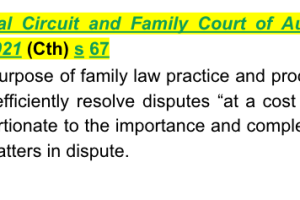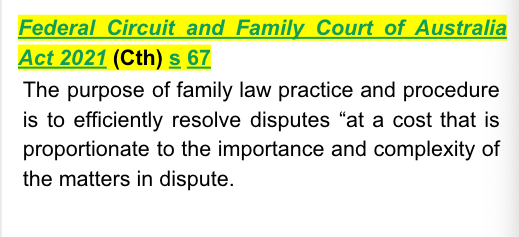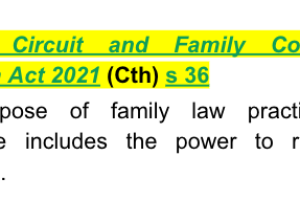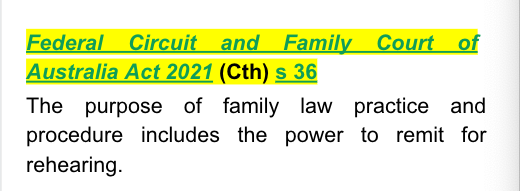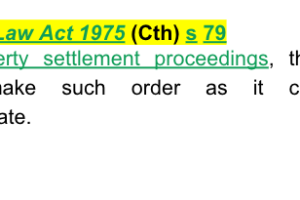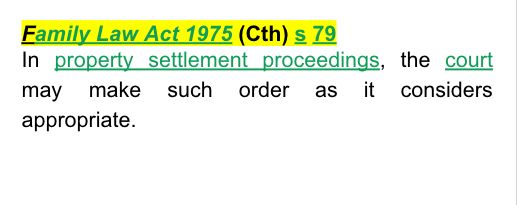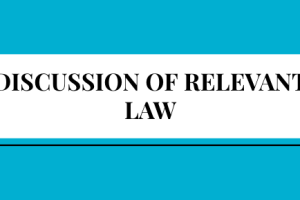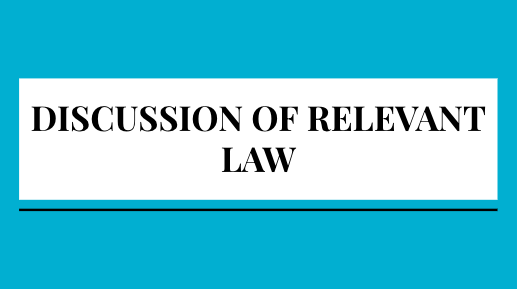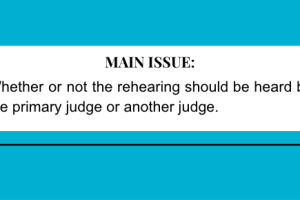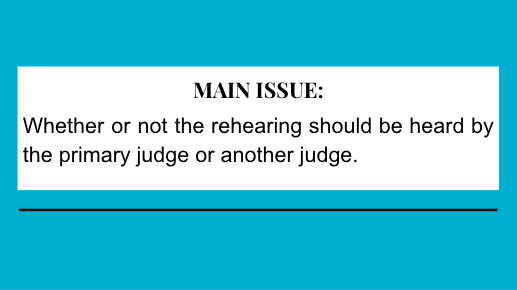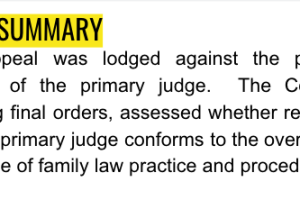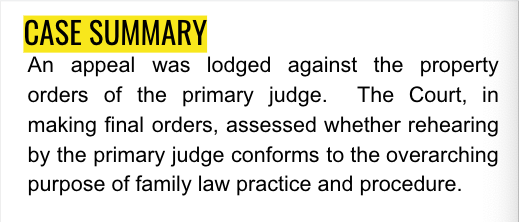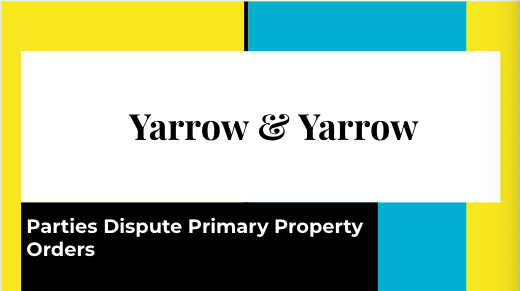- · 4784 friends
Parties Dispute Primary Property Orders

Yarrow & Yarrow (No 2) [2022] FedCFamC1A 171 (20 October 2022)
An appeal was lodged against the property orders of the primary judge. The Court, in making final orders, assessed whether rehearing by the primary judge conforms to the overarching purpose of family law practice and procedure.

Facts
On 1 September 2022 the Court allowed in part an appeal against property orders. The property orders provided that two real properties (one in City E and one in City C) be sold, and the net sale proceeds be divided 54 per cent to the father and 46 per cent to the mother. However, in the event the mother did not relocate to Country D, the sale proceeds of the City C property were to be divided so as to achieve an overall division of property 57/43 per cent in the mother’s favour. In broad terms, otherwise the parties kept the property and financial resources in their own respective names.
Only part of Ground 7 of the subsequent appeal succeeded. That part related to the adequacy of the primary judge’s reasons as to how, when considering factors under s 75(2) of the Family Law Act 1975 (Cth) (“the Act”), her Honour took into account the nature and effect of the property orders proposed to be made based upon the parties’ contribution based entitlements. The Court held that rehearing seems to be the inevitable outcome, although one which seems quite disproportionate to the very narrow compass of the success of the appeal, especially given the lack of any challenge to the underlying findings of fact.

Issue
Whether or not the rehearing should be heard by the primary judge or another judge.

Applicable law
Family Law Act 1975 (Cth) s 79 - provides that in property settlement proceedings, the court may make such order as it considers appropriate.



Analysis
The appellant contends that the matter should be remitted to a judge other than the primary judge, principally because her Honour has previously determined how the parties’ property should be divided under s 79, and it is said therefore would be required to recuse herself from dealing further with the matter.
The respondent points to the fact that none of the primary findings of the primary judge were challenged in the appeal, and further, although the foundations for the ultimate property division were challenged, that challenge did not succeed.
All that remains to be done is the provision of further reasons pertaining to the primary judge’s consideration of the matters listed in s 75(2) of the Act, and particularly ss 75(2)(b) and (n), and then the further exercise of the s 79 discretion based upon the facts as found by the primary judge. The primary judge is not inevitably disqualified from undertaking that task, which involves no questions of credit or the resolution of controversial evidence. Any application for recusal can, in any event, be made to the primary judge.
Conclusion
The property division claim contained in proceedings HBC 188 of 2020 is remitted to the primary judge for:
- the formulation of reasons for her consideration of the matters referred to in s 75(2) of the Family Law Act 1975 (Cth) (“the Act”) and particularly s 75(2)(b) and s 75(2)(n); and
- further consideration of the just and equitable division of the property of the parties under s 79 of the Act.


